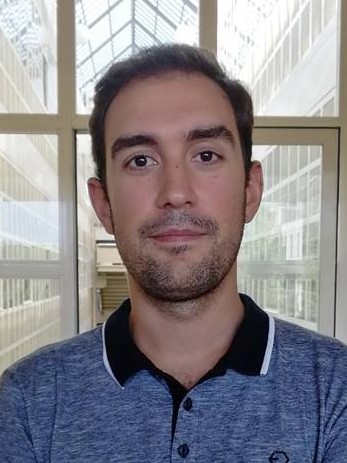Degree: Doctor
Affiliation(s):
CIQUP
Bio
Carlos Fernandes graduated in Chemistry (2011) and finished his Master’s in chemistry in 2012 at the Faculty of Sciences University of Porto (FCUP) with a final classification of 18 (out of 20). After that, CF was awarded with 3 fellowships to work in 3 research groups (REQUIMTE – 2012, CIQUP and LEPABE – 2013). In 2014, CF was awarded for an international PhD fellowship by Foundation for Science and Technology (FCT). In 2018, CF was awarded with the European Doctorate title, and his PhD research was recognized by the prestigious Paul Ehrlich MedChem Network (http://www.pehrlichmedchem.eu/) as one of the best European PhD thesis in the Medicinal Chemistry field.
Afterwards, CF was awarded with a Post-doctoral fellowship (2018) and hired by FCUP as principal researcher of a project funded by FCT (2019). In 2020, CF was hired as a doctorate researcher in a pharmaceutic/cosmetic company (MitoTAG), where he was responsible for the production of antioxidant compounds. In 2021, he was awarded with a 6-year contract in the IV call of Scientific Employment Stimulus funded by FCT (2021.04016.CEECIND). From 2020 up to now, CF has been lecturing BSc and MSc classes within the curricular units at the FCUP and during the years of 2022 and 2023, he was invited by FCUP as assistant professor to give “Drug transport systems for intracellular delivery” classes. He is a member of the Researchers Committee of the Department of Chemistry and Biochemistry, FCUP (2023-now) and also an integrated member of the CIQUP-IMS (Chemistry Research Center-Institute of Molecular Sciences) research unit.
He was a guest editor of a special issues of Molecules and actively collaborates as a referee in several journals in the Medicinal Chemistry and Nanomedicine areas.
Projects
This CIQUP member does not yet have any projects linked with him.Publications
Showing 5 latest publications. Total publications: 14
Show all publicationsArticle, Indexed in: crossref, scopus, wos DOI: 10.1016/j.cbi.2025.111425
 P-018-10M
P-018-10M
Article, Indexed in: crossref, scopus, wos DOI: 10.3390/ijms26052146
 P-018-C8V
P-018-C8V
Article, Indexed in: crossref, scopus, unpaywall, wos DOI: 10.3390/ijms25010504
 P-00Z-SVS
P-00Z-SVS
Article, Indexed in: crossref, scopus, unpaywall, wos DOI: 10.1021/acsami.4c00614
 P-010-B1R
P-010-B1R
Article, Indexed in: crossref, scopus, unpaywall, wos DOI: 10.1021/acsptsci.4c00124
 P-010-DCZ
P-010-DCZ

